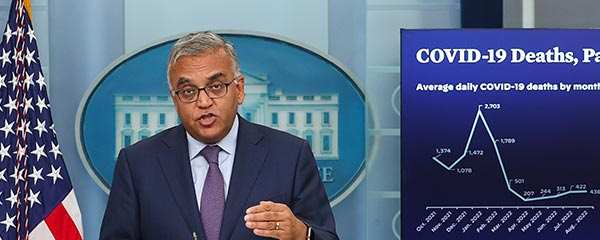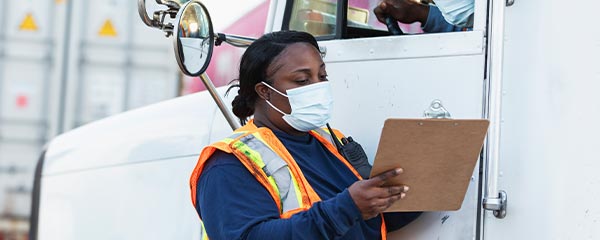Story Highlights
- Fear of getting COVID-19 at work still a factor for 26% of U.S. employees
- Rate has declined from 33% in July and 36% a year ago
- Women, Democrats, education and healthcare workers remain most concerned
WASHINGTON, D.C. -- U.S. workers' fear of contracting COVID-19 on the job has waned over the course of the pandemic, but a certain amount of unease persists. About one in four employed adults still say they are "very" (6%) or "moderately" (20%) concerned about being exposed to the coronavirus at work, while a third are "not too concerned" and 41% are "not concerned at all."
The 26% of workers concerned today is down from 33% when Gallup last measured this in July and from 36% a year ago. The rate was highest in July 2020, when 51% of employees were concerned.
The latest data are from Gallup's COVID-19 tracking poll, conducted by web Oct. 11-19, 2022, using the Gallup Panel. Over 3,700 adults completed the survey, including 1,174 adults employed full or part time by an employer.
Concern about exposure to COVID-19 at work continues to be more pronounced among women, Democrats, education workers and healthcare workers, than it is among their counterparts. These groups have consistently shown the most concern about workplace exposure throughout the pandemic, and that continues today, despite the decline in concern over time among all groups.
Since July, concern has fallen particularly sharply among Democrats (down 13 percentage points to 38%) as well as among people employed in the education field (down 13 points to 40%). There was no change among workers who identify as political independents (steady at 26%) and little change among Republicans (down five points to 9%).
Twenty-seven percent of on-site employees are concerned about contracting COVID-19 at work, similar to all employees nationally. The rate is slightly higher, at 31%, among hybrid workers, which may partly explain this group's reluctance to be in the office full time. Both groups' concern has diminished in the latest poll, but the decline was greater among on-site employees, falling from 35% concerned in July to 27% in October.
Employees Expect a Modest Winter Surge
The recent poll also finds nearly two-thirds of employees (64%) saying they expect COVID-19 infections in the U.S. to increase in the upcoming fall and winter months, which may explain ongoing concern about the risk of exposure at work.
In all, 14% of workers expect infections to increase "a great deal" and 50% "a moderate amount," while just 8% think infections will decrease and 29% think they will stay the same. Employees' views on this question are similar to those of the American public as a whole.
Employees are apprehensive about being exposed to the coronavirus not only on the job but in other aspects of their lives. Nearly one in five employees (19%) report that in the past seven days, they have avoided going to events with large crowds because of their concern about the coronavirus. Slightly fewer have avoided traveling by airplane or public transportation (15%), going to public places in general (13%) or small social gatherings (10%). Nearly four in 10 (37%) report wearing a mask on their face when outside their home in the past seven days. Again, these levels of concern are similar to those of U.S. adults generally.
Half of Employees Are Vaccinated and Boosted
As of October, 48% of U.S. employees report being vaccinated and boosted to some extent (20% with the new booster, 28% with only an older one), and 19% have been vaccinated but not boosted. The remaining third are not vaccinated, although some of them (representing 10% of all employees) say they plan to be.
While vaccination should help employees avoid severe illness, it does not inoculate them from concern about being exposed to COVID-19 at work. Rather, as Gallup has seen over the past year, vaccinated Americans tend to be more cautious about their exposure to COVID-19 and express greater concern about the pandemic than those who are choosing not to be vaccinated. The latter group is, almost by definition, unconcerned.
Bottom Line
With COVID-19 infection rates holding steady at a relatively low level and fewer deaths being reported, many employers are encouraging or requiring workers to come back to their workplaces, at least part time. Employees' enjoyment of working from home and aversion to commuting may be the primary obstacles to luring them back in, but fear of being exposed to the coronavirus remains a factor for one in four workers, and that rate is even higher among some demographics.
To stay up to date with the latest Gallup News insights and updates, follow us on Twitter.
Learn more about how the Gallup Panel works.




